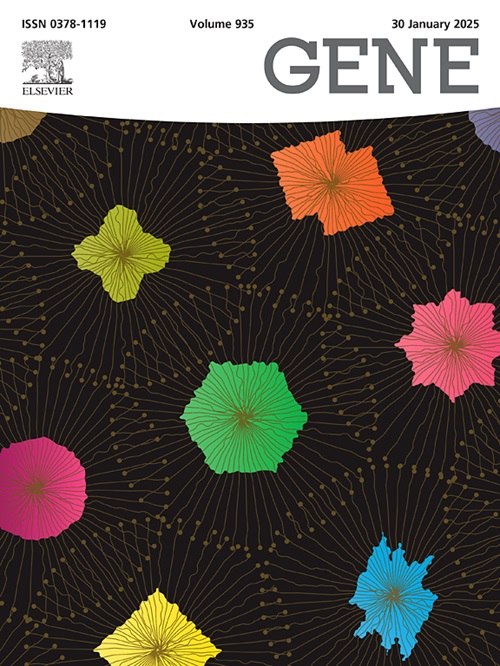拓宽了White-Sutton综合征的临床谱系,对POGZ基因中一种新的可能致病变异的患者与乳糜泻共发病的影响
IF 2.4
3区 生物学
Q2 GENETICS & HEREDITY
引用次数: 0
摘要
白-萨顿综合征(WHSUS)是一种罕见的由POGZ基因杂合变异引起的神经发育障碍。报告病例略超过100例,由于其可变和非特异性临床特征,诊断WHSUS仍然具有挑战性。我们报告了一例携带POGZ基因杂合新生变异的WHSUS病例,其临床特征包括全面发育迟缓、自闭症谱系障碍、全身性肌阵挛性癫痫、肌张力低下和明显的畸形特征。值得注意的是,患者还表现出轻微的胃肠道症状,并根据组织转谷氨酰胺酶IgA水平升高、十二指肠活检和HLA分型确诊为乳糜泻(CD)。基于近期有关CD中染色质重塑基因的证据,以及已知的POGZ蛋白作为染色质重塑调节因子的作用,我们首次谨慎地提出POGZ基因可能参与乳糜泻的发病机制,为White-Sutton综合征与CD之间可能存在的关联提供了证据。需要进行全面的功能、遗传和流行病学研究来进一步探索这种潜在的关联。这可能会拓宽WHSUS的临床范围,并提高对cd相关表观遗传因素的理解。本文章由计算机程序翻译,如有差异,请以英文原文为准。
Broadening the clinical spectrum of White-Sutton syndrome, implications for co-morbidity with celiac disease in a patient with a novel likely pathogenic variant in the POGZ gene
White-Sutton syndrome (WHSUS) is a rare neurodevelopmental disorder caused by heterozygous variants in the POGZ gene. With slightly over 100 reported cases, the diagnosis of WHSUS remains challenging due to its variable and non-specific clinical features. We report a novel case of WHSUS carrying a heterozygous de novo variant in the POGZ gene and with characteristic clinical features including global developmental delay, autism spectrum disorder, generalised myoclonic epilepsy, hypotonia and distinct dysmorphic features. Notably, the patient also presented with mild gastrointestinal symptoms and was diagnosed with celiac disease (CD) based on elevated tissue transglutaminase IgA levels, confirmatory duodenal biopsy and HLA typing. Based on the recent evidence implicating chromatin remodelling genes in CD and the known role of the POGZ protein as a regulator of chromatin remodelling, we cautiously propose, for the first time, to our knowledge that the POGZ gene may contribute to the pathogenesis of the celiac disease, providing evidence of a possible association between White-Sutton syndrome and CD. Comprehensive functional, genetic and epidemiological studies are needed to explore further this potential association, which may broaden the clinical spectrum of WHSUS and improve the understanding of CD-related epigenetic factors.
求助全文
通过发布文献求助,成功后即可免费获取论文全文。
去求助
来源期刊

Gene
生物-遗传学
CiteScore
6.10
自引率
2.90%
发文量
718
审稿时长
42 days
期刊介绍:
Gene publishes papers that focus on the regulation, expression, function and evolution of genes in all biological contexts, including all prokaryotic and eukaryotic organisms, as well as viruses.
 求助内容:
求助内容: 应助结果提醒方式:
应助结果提醒方式:


